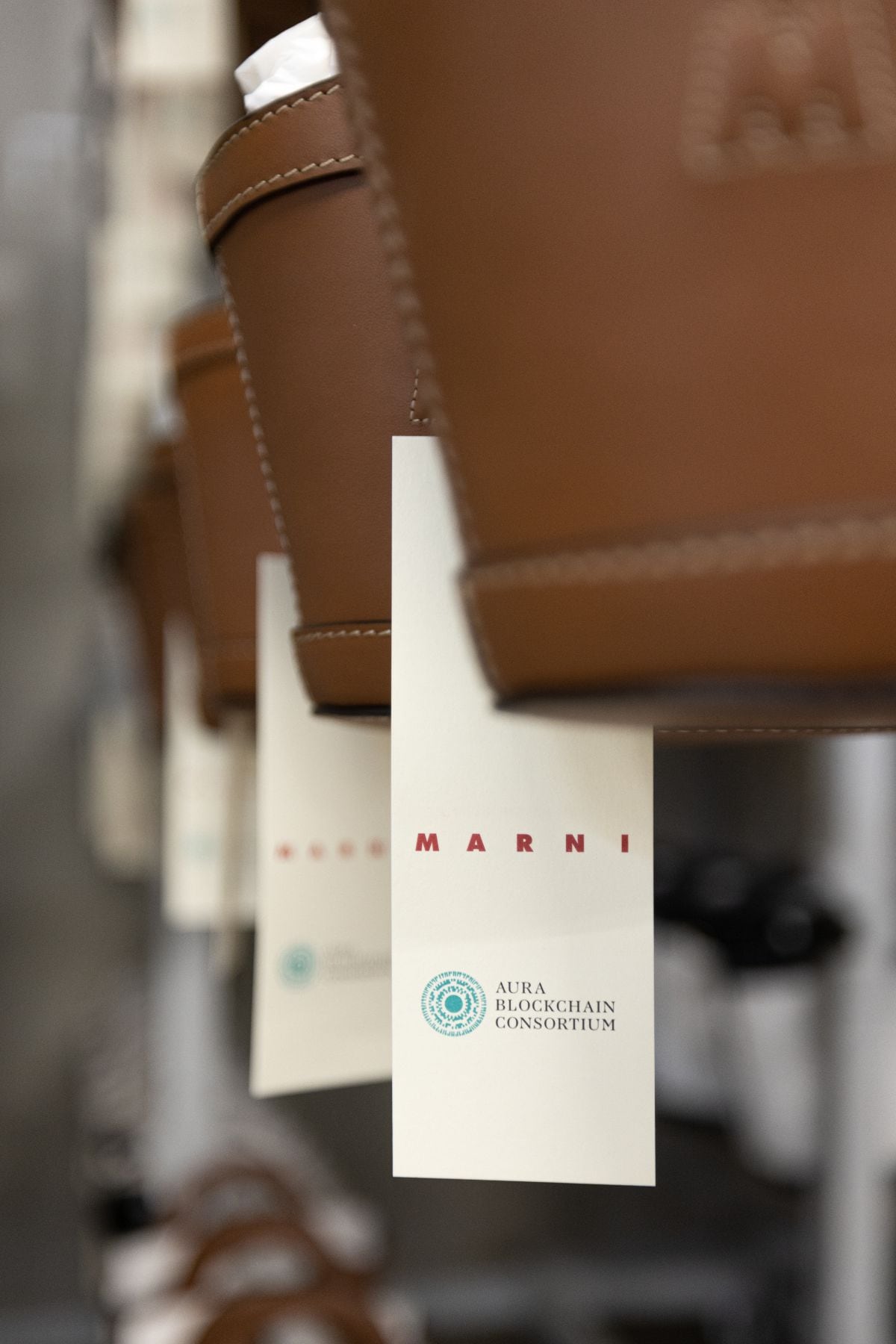
As of this month, the Aura Blockchain Consortium has created digital product passports containing information ranging from traceability credentials to storytelling around the product for more than 40 million items, the group said in a statement.
Among the physical items imbued with its digital identities, typically accessed through NFC chips or QR codes, are pieces from Prada’s Eternal Gold fine jewellery collection, Loro Piana’s linen André shirts, Rimowa suitcases and more than 580,000 items across OTB Group’s brands, including Marni, Maison Margiela and Jil Sander, it said.
Romain Carrere, who was named the group’s new chief executive and general secretary in September 2023, called it a “milestone” in the statement.
Aura was founded in April 2021 by a rare alliance of luxury players including LVMH, Prada Group and Richemont-owned Cartier, with OTB Group joining as a founding member soon after, with the goal of using blockchain technology to improve the traceability and transparency of luxury products. The group today bills itself as “the world’s leading blockchain partner” for luxury, though other companies — both blockchain-focused and not, including Arianee and EON — are also busy creating DPPs for fashion items.
Brands had begun adopting DPPs as a way to offer shoppers more information on their products and for purposes like enhanced storytelling. But the urgency has recently increased with the EU proposing new regulations that would require fashion and other industries to give each item its own DPP as early as 2026 under a broader push for corporate sustainability and transparency.
Learn more:
Millions of Luxury Products Now Come With Unique Digital Passports. Here’s What That Means.
Brands are starting to adopt the tags in large numbers as they prepare to meet major new EU regulations coming down the pipeline. They’re using the opportunity to build in customer-facing features that can appeal to shoppers, too.



